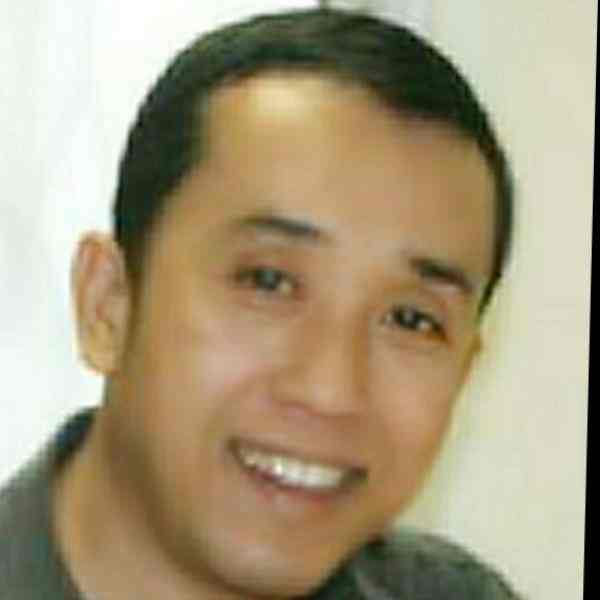Introduction
Seakson Dhammawong is implementing a transition program for prisoners in Thailand which assists them through the difficult release period and helps them to reintegrate successfully into their home community.
The New Idea
Seakson is trying to break the pattern of recidivism which plagues Thailand's correctional institutions. He is building a prisoner support system to assist inmates about to complete their sentences and return to the community. This is a very vulnerable time for the inmates, their families and for a wary community fearful that they may commit future crimes.
Seakson believes that the inmates have four basic needs. He is developing model ways of responding to each.
First, the family of the inmate needs to take an active and supportive role in the reintegration process. This means communicating with the inmate while he or she is still in prison, visiting if possible, assuring the prisoner of future support during the embarrassing, difficult struggle to win a new place in straight society, and trying to create a welcoming atmosphere for them when they do move home. This takes a lot of counseling of both sides since deep-seated family disarray is often associated with crime.
Second, the inmates need gainful employment upon their release. Seakson and volunteers work to identify employers who will consider hiring an ex-convict.
Third, there needs to be a safety net for the ex-convicts so that they have someplace to turn to for help. Seakson feels that groups of ex-convicts who have succeeded can be very helpful in helping new releases to get through the rough spots.
Last, the convict needs to have a positive attitude about his future. Seakson tries to ensure he/she has an advisor or counsellor to help develop a plan for what he will do once he or she is released. The prisoner needs help to accept his mistakes, forgive himself, and be ready to get on with his life.
The Problem
Every year sees thousands imprisoned for various crimes in Thailand. Many of these convicts are repeat offenders, re‑committing their crimes, "revolving" in and out of the penitentiary system on a regular basis. Part of the reason they return is because they simply cannot create a stable lifestyle for themselves on the outside.
They have lost confidence in themselves, their families, and society. They, quite realistically, know that it is going to be painful to face the noncriminal world again -- each encounter beginning with discomfort and continuing with a more or less open element of fear and distrust. Even if they have skills (unlikely), getting a decent job will be terribly, terribly tough.
Even if the inmates respect their families, their fear that they will not be welcome is often justified. The family has been shamed. It may be fearful. It may not want to have to support someone unlikely to be able to find work and who may bring new shame.
Thai inmates now receive little assistance while inside the prison to prepare themselves for their release. Virtually no counselling or support services are available to help inmates develop a step by step plan for what they will do when they return to the community. The inmates need to think through how to properly prepare themselves to begin new lives. And the necessary resources and opportunities, in the community must exist as well.
The Strategy
Seakson is developing an approach that he hopes will become a model for correctional institutions. He begins by first conducting one on one interviews with the inmate to evaluate their situation and its root causes. In the process he works hard to build human rapport and trust. Next Seakson initiates contact with the family of the inmate. Volunteers help with this step which has been modestly successful. Somewhat over one half of the families contacted have re-established communication with the inmate.
Seakson and his core of volunteers are currently seeking jobs for the convicts. They are building a network of employers who can be matched with inmates having the appropriate job skills to handle the job which is available. Seakson works hard to break down the fears and stereotypes that so often block ex-convicts. This is unavoidably tough, slogging work.
A central factor in Seakson's planning, is the successfully integrated former inmates. They can counsel more credibly than any other person. They know the emotions, the hurdles, the temptations. They also know the language of the jail and can catch the nuances.
Seakson hopes they will form mutually supportive groups. In addition to serving as "big brothers" to new releasees, he expects they will set up "occupational groups" or businesses for their own employment in an unwelcoming economy. These groups would also provide temporary jobs, training and even emergency funds for new releasees. Seakson has many longer term plans for his program. He plans to hold "reconciliation ceremonies" for the released prisoners. He also plans to provide transitional housing for them. It is during the time immediately after release that the inmate is most urgently in need of support.
Seakson is also working to change community attitudes and public policies about ex-convicts.
The Person
Seakson Dhammawong, age 25, is a graduate from the Faculty of Political Science with a B.A. from Ramkhamhaeng University.
Building on familial values of compassion towards the poor, Seakson has worked in the slum areas as an employee of World Vision, Thailand. It was here that he first witnessed the pattern of recidivism. He saw poor people arrested for stealing, sent to prison, released, steal again, and so on. This experience motivated him to get to the root causes of the problem.
His concern was further deepened when he served as a religious teacher at the central Prison. He has since decided to devote himself fully to this ignored, despised group.
